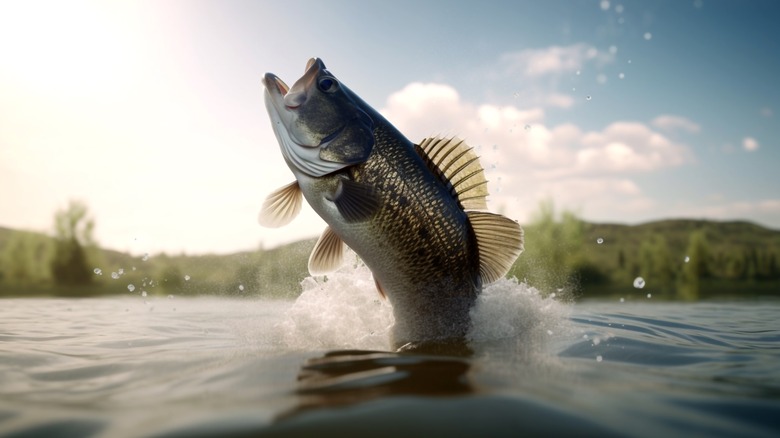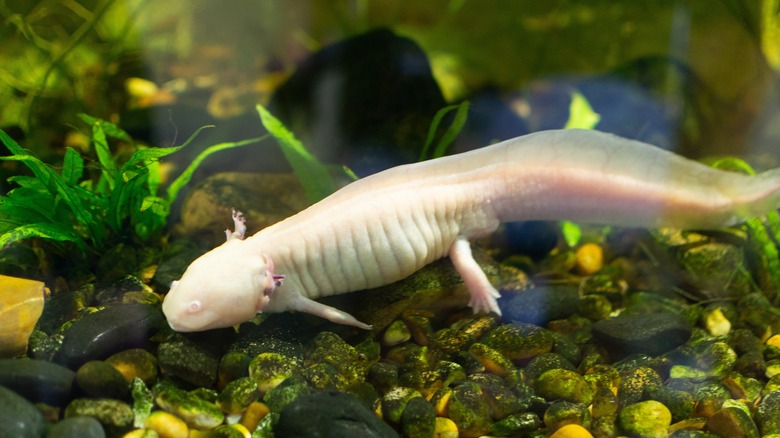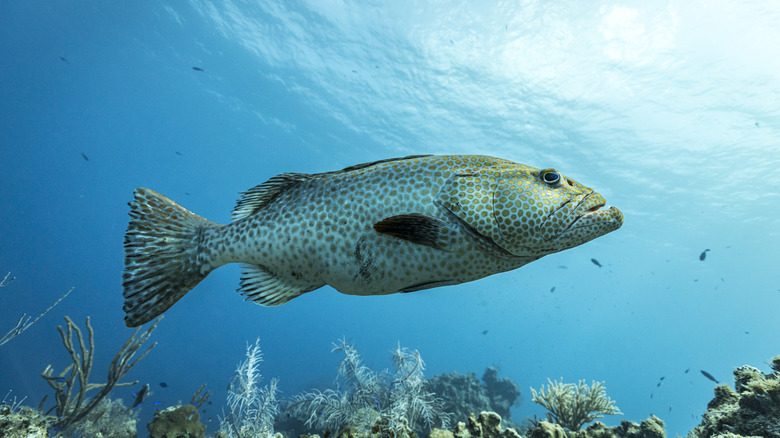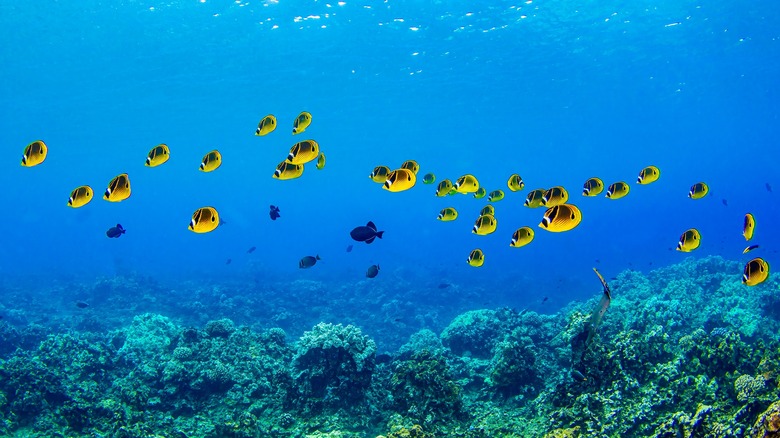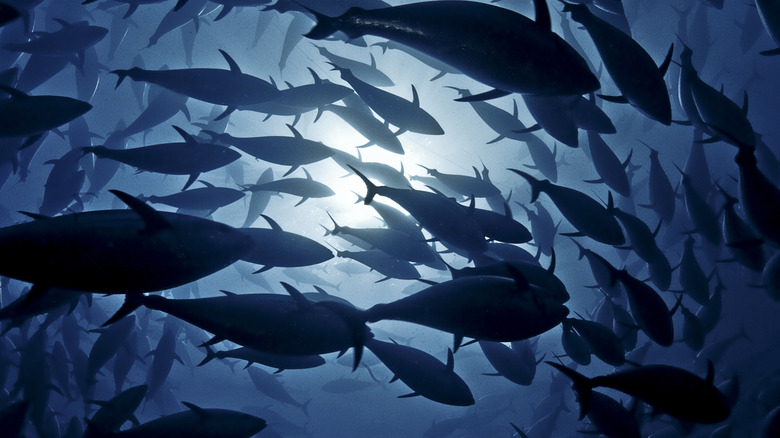Can Fish Drown Or Suffocate?
Fish spend their lives in the water, so it might seem silly to ask whether they can drown. But if you know even a little about how these creatures survive, the question starts to sound a little less silly. After all, one of the main characteristics of fish is that, just like humans, they take in oxygen which their bodies need to survive, and expel carbon dioxide as a waste by-product. So, if something prevents them from absorbing oxygen while they're immersed in the water, would that technically be considered drowning?
Drowning is, indeed, defined as dying by being submerged in water. While it's technically not possible for a fish to die simply by being submerged in this way, it is possible for the water itself to kill fish. What's more, there are an unfortunate amount of ways fish can suffocate underwater, illustrating the perilousness of life as one of these aquatic animals. So, if you've ever wondered whether fish can drown or suffocate and how this process works, follow along as we take a deep dive and answer those questions.
How do fish breathe?
The way fish breathe underwater might seem mysterious compared to humans, but the process is actually quite similar. Just like us, fish need oxygen flowing through their bodies in order to survive, and must expel carbon dioxide as a waste gas. Whereas we have lungs which draw in oxygen from the air, fish use gills — one of the many incredible adaptations fish evolved over many millions of years. Gills are organs made up of small blood vessels called capillaries, which typically sit on the side of the fish's head. As water runs over the surface of gills, the dissolved oxygen in the water is absorbed and sent throughout the fish's body via the bloodstream.
Most fish breathe in this way by opening and closing their mouths to force the liquid over their gills. But some, such as certain species of shark, must swim in order to keep water running past their gills and extract the oxygen. Compared to humans, fish have a relatively tough time getting the oxygen they need. In the air we breathe, oxygen makes up around 21% by volume or 210 milligrams per liter, but in well-oxygenated surface seawater there is far less dissolved oxygen, at around 8 milligrams per liter. Fortunately for fish, their gills are extremely efficient and are able to extract the majority of the oxygen present in their aquatic environment.
Can fish drown?
If fish survive by extracting oxygen from the water around them and expelling carbon dioxide, does that mean that if this process fails, they can technically drown? Well, the answer isn't all that straightforward. If a fish was unable to continue the process of extracting oxygen from the water, either due to damaged gills or due to injury that prevents them from moving through the water, then that would technically lead to suffocation and not drowning.
However, fish do not have lungs, so there is no way for them to drown in the traditional sense. After all, drowning has to involve death as the result of being submerged in water, and in the case of fish, they actually have to be submerged in water to survive, so drowning isn't really the correct term. That said, it's possible for fish to die as a result of being submerged in water that doesn't provide the oxygen they need, which could be considered a form of drowning. Such conditions occur in some lakes, rivers, and even seawater that are unable to retain oxygen due to external conditions such as pollution.
Can fish suffocate?
While fish can't technically drown, they can very easily suffocate, even when submerged in water. The most obvious example where a fish would suffocate, however, is when they're taken out of water. In this case, the fish's gills stick together when exposed to air, which ultimately leads to the animal suffocating. But this process looks different depending on the species of fish, with some able to survive for long periods outside of water. For example, the South American arapaima can survive out of the water for up to 24 hours. It's also worth noting that some fish, such as the lungfish and Bichirs, actually have primitive versions of lungs and come to the surface to breathe.
Other fish, such as some sharks, don't use their mouths to push water over their gills, and so have to swim constantly in order to maintain a constant supply of oxygen. If those sharks are caught by fishermen, have their fins removed, and are then tossed back into the water, this will lead to them suffocating due to their inability to swim and pass water over the gills.
How else can fish suffocate?
Anything that stops gills working will likely lead to suffocation in fish. Damaged gills, whether from fishing equipment, disease, or clashing with other fish and predators, mean the animals are unable to properly extract dissolved oxygen from the water, ultimately leading to suffocation.
Although fish have adapted to live in different temperatures, and there are major differences between freshwater and saltwater fish in that regard, rising sea temperatures and pollution are also thought to contribute to fish suffocating. High water temperatures decrease the level of dissolved oxygen in the water, making it harder for fish to breathe. Too little oxygen in the water can lead to suffocation, or as professor Martin Grosell, a marine biologist from the University of Miami, put it, "As the temperature in the water increases, the amount of oxygen available decreases. And too little oxygen spells trouble for fish. It's hard to imagine, but a fish can drown."
